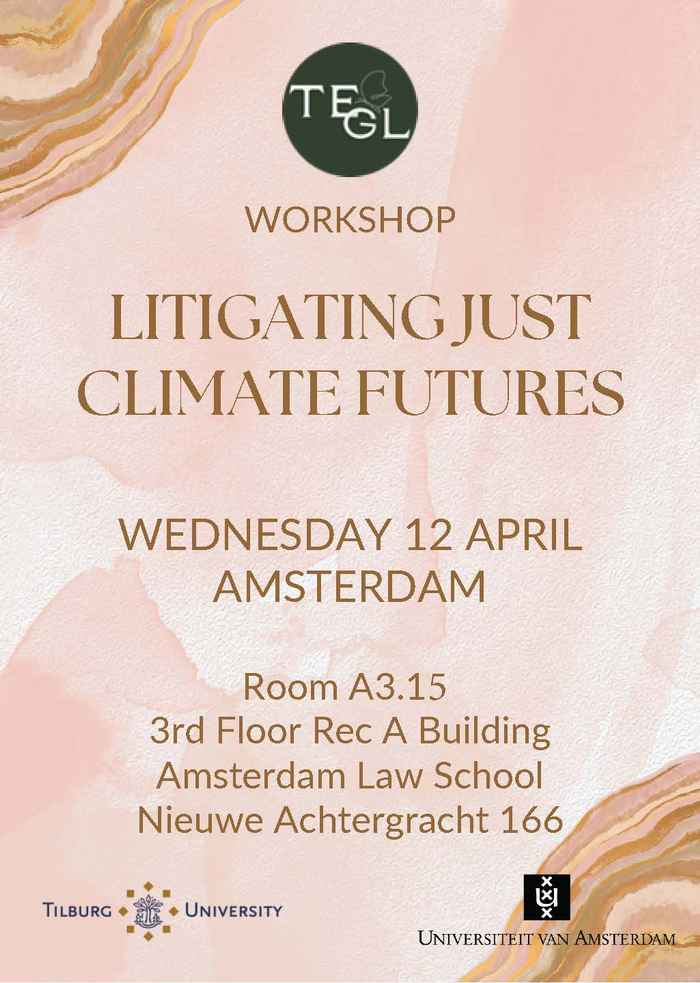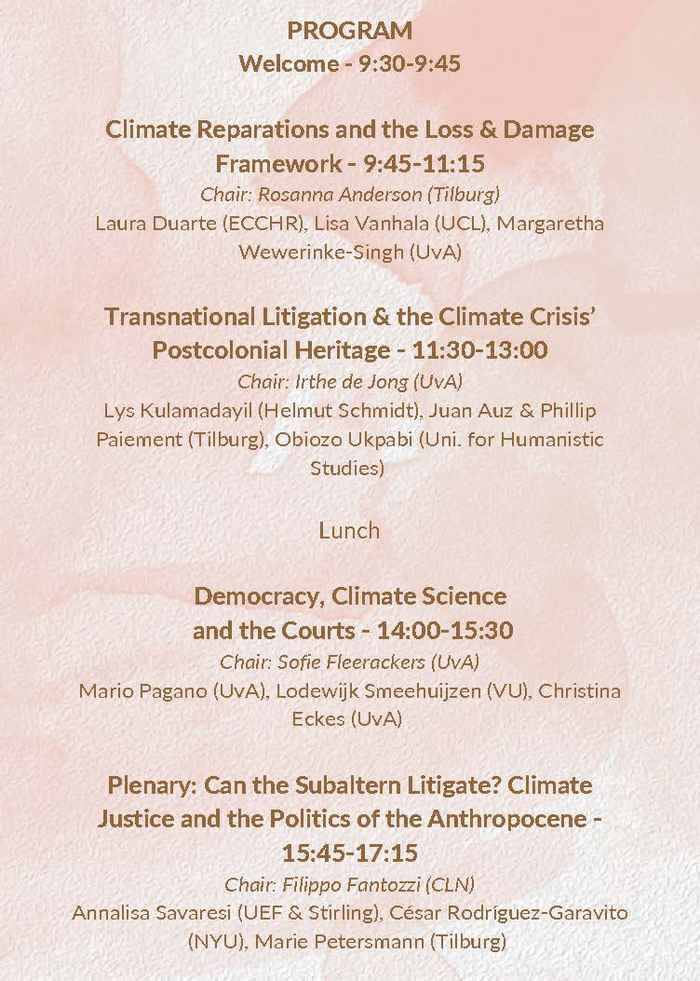Litigating Just Climate Futures
- Date
- 12 April 2023
- Time
- 09:00 -17:00
- Location
- Roeterseilandcampus - building A
- Room
- A3.15

The workshop highlights the justice components of how, in the process of litigation, climate science and the epistemic authorities are presented. Furthermore, it seeks to identify the extent to which corporate power can be held accountable through litigation. Finally, the workshop considers how marginalized communities living on the frontlines of climate adaptation can (or cannot) participate in climate litigation. It aims to understand their associated experiences. With these contributions, the participants seek to better understand the promises and perils of litigation as a potentially transformative factor in climate governance.
Organised by Christina Eckes (UvA) and Phillip Paiement (University of Tilburg). This event is supported by the Transformative Effects of Globalization in Law (TEGL) project.

